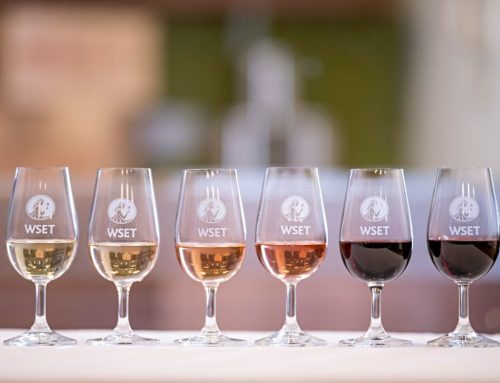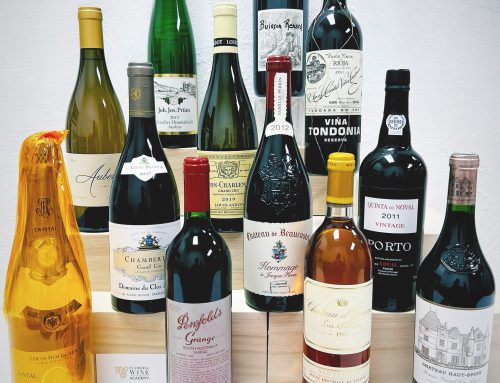Every year we see more celebrities entering the drinks industry as partners, pitchmen and owners. But do they really influence consumers when purchasing alcoholic beverages?
Early influencers
Celebrities, as artists, politicians and athletes can give credibility to a product and, therefore, influence consumers. From early on, kings and queens were the trendsetters. Russian Czars were the main clients for the champagne producers, which led the nobility to buy champagne too. French Regent Philippe II, the Duke of Orléans, enjoyed and served so much champagne at his receptions, that he ended up influencing the Parisian society to drink it. These were some of the first influencers in the drinks industry.
Across the centuries, wine and spirits were seen as something from God or as something mysterious. Greek and Roman poets and philosophers have much to do with it, as they not only worshiped wine goddess, such as Dionysius and Bacco, but wrote about the benefits of drinking wine. Shakespeare also refers to wine in many of his writings, such as in Henry VI, where he states that a man cannot make anyone laugh, because he drinks no wine.
Celebrities can be simple pitchmen or owners with real interest in the business. Frank Sinatra was known as a whisky drinker. He appeared in pictures drinking Jack Daniel’s, and was even buried with a bottle of it (according to the company). He was not the owner of the business but certainly attracted many people to drink it.
Celebrity owners
But a second category of influencers, celebrities that own the business and actively participate in decision-making, is the most interesting. Gerard Depardieu, the famous French actor, has had wineries for more than 30 years. He invested not only in France, but in the United States, Italy and other countries. Actor Sam Neil has been in the wine business for 20 years now. He owns and cares for its vineyards in New Zealand. His business is so serious that vineyard managing is now his main job. In the US, the first celebrity to make wine was the director Francis Ford Coppola in the 1970’s. Today, his wines can be found in every corner and every shop across the US.
Former couple Brad Pitt and Angelina Jolie purchased Chateau Miraval in South France in 2008 and begun the production of a rose wine in partnership with Perrin Family from Rhone. The first vintage of the wine was sold in a couple of hours and this same wine was elected as rosé of the year in 2013 by Wine Spectator magazine.
Celebrity influencers
But the drinks industry can use celebrities as a marketing tool also. Having an actor, rockstar, popstar or celebrity backing a brand is something every company wants, as it brings instant recognition by the public.
Guitar player Carlos Santana launched a sparkling vintage wine with Mumm Napa. Santana did not participate in any winemaking process, but approved the taste profiles. It sold so well, that a second wine received his name, Santana Brut. Mumm already had a good brand name, is recognized internationally, so why pair with a rockstar? This partnership certainly brought new opportunities, such as bringing new clients, who usually drank beer or spirits, for instance. Popstars can help selling the product among young consumers too, who would not normally pay 20 dollars for a bottle of wine.
Restaurant owner Joël Robuchon launched a beer in Japan, which is available to drink in his restaurants too. Consumers who liked to restaurant and Joël as a personality can now have his beer. For Japan Sapporo Brewery, the company that produces the beer, this was the opportunity to enter a market, where consumers prefer to drink wine.
George Clooney, Justin Timberlake and actress Mila Kunis paired with tequila and whisky brands. George Clooney is regarded as refined by the public. So when he drinks tequila, the message he is carrying is that tequila is not only for young people in Spring Break, but that it can be enjoyed and tasted.
Justin Timberlake and Mila Kunis attract people to drink the products they market, as they are seen as young, successful and two role models in Hollywood. Mila, for instance, did a partnership with Jim Beam. The common trend is that women do not drink whisky; they prefer wine. So Jim Beam thought that a way to expand the product consume among women, and especially young women, would be to put a successful young actress as their pitch woman.
Actors bring instant recognition for the product, they back up the product and they are trend setters. That is the main strength of having a celebrity marketing for the drinks industry.
When celebrities are a problem
Nevertheless, a celebrity can repel people from drinking the product too. That happened when Paris Hilton partnered with a Prosecco producer to market their wine in can. Many people instantly regarded it as cheap, with no quality. Paris is known for partying and the producer must have thought that its product would be great in bars and discos, among young people. But the problem is that Paris is a celebrity also known for drunk driving and other scandals.
Another issue is when consumers think that a celebrity wine is of inferior quality. The reasoning for this is that if a celebrity is backing up a product, maybe is because the wine is not good. Rock group AC/DC had a wine called Highway to Hell Cabernet Sauvignon. It came in carton and was produced in Australia as bulk wine. It apparently sold 35,000 units on the first week, but after tasting, many consumers discovered that the label they worshiped was different from the liquid inside.
Other ways to sell wine and drinks
The drinks industry can also use movies, TV series and music as platform for their brands. The movie “Sideways” is known for welcoming people to visit California wine country, as well as to make them drink more Pinot Noir (and less Merlot). Characters of TV series Friends drank wine in many occasions, which may have led fans to drink more wine too. Singer Billy Joel sang about Dom Perignon in his music “Big Shot”, and many rappers mention wine and spirits brands in their songs.
In this way, the influence of pop and celebrity in drinks industry is a multifaceted one. The branding can be as direct as a TV advertisement or smooth as a phrase in a song or a post in social media. But this will certainly continue to be part of the drinks industry for the next few years. Celebrities drink, produce, invest and market the products setting trends and influencing his followers. The only issue producers and brand owners must carefully consider is the person they choose to be the face of their brand.
Alessandra Esteves
*Alessandra is Director of Wine Education for Florida Wine Academy, a company offering wine courses in Miami, Florida.





Leave A Comment